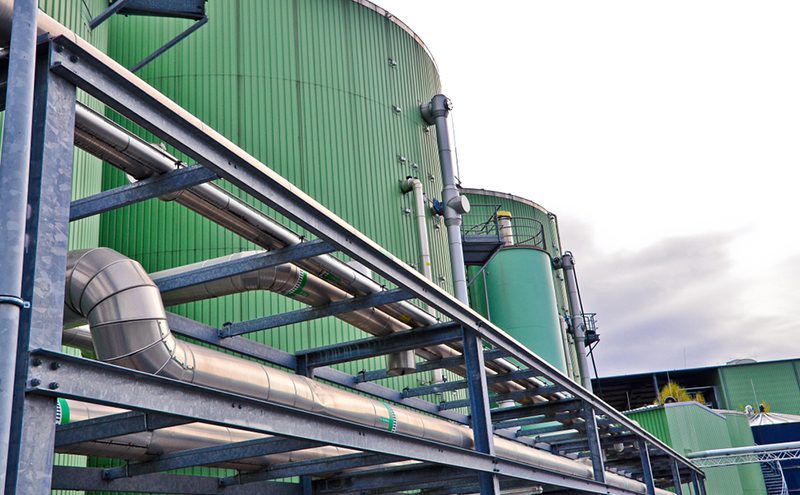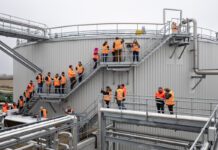
Anaerobic digestion in the food and drink industry is growing eight times slower than in the agriculture sector; millions of tonnes of waste is going unused
Water and wastewater asset management company Alpheus Environmental has called for more support for large-scale food and drink manufacturers who want to install anaerobic digestion facilities on-site.
The firm says analysis of existing funding and incentives found that it is more cost-effective for large-scale manufacturers to offset their energy usage by purchasing off-site renewable energy assets than produce energy from the company’s own waste.
At present, it is more cost-effective for a large-scale food or beverage company to invest in a wind farm in Scotland – for example – than install an on-site anaerobic digestion facility.
The opportunity cost to the UK is significant, with millions of tonnes of waste going to landfill and millions of litres of wastewater sent to drain that could otherwise be used to produce bioenergy, biosolid sludge products – which have multiple uses as a fuel source and soil conditioner – and to feed large volumes of biogas to the grid.
Current funding and incentives for anaerobic digestion projects favour farmers and small-scale food manufacturers and processers. As a result, anaerobic digestion in those sectors is thriving with the number of agricultural plants across the UK rising from 50 in 2012 to 450 in 2018, marking an 800% increase.
Meanwhile, there are less than 50 industrial-sized factories housing on-site anaerobic digestion plants in the UK, marking an increase of 100% since 2012 according to ADBA data.

Steven Wilcox, Head of Business Development at Alpheus Environmental, which is part of Anglian Water Group, remarked:
“We meet with large-scale manufacturers who want to do the right thing and meet their sustainability targets, but at present the incentives simply aren’t there for them to choose anaerobic digestion.
“With Brexit generating uncertainty in relation to ingredient sourcing and exports over the next 5 years, large-scale manufacturers see the multi-million-pound investment needed to install anaerobic digestion technology as being a considerable risk.
“At the risk of the UK falling behind other industrialised countries, the government, wastewater management industry and food & beverage sector need to work together to make anaerobic digestion a more appealing and accessible option for industrial-sized companies.”
In addition to increased funding and incentives for industrial-scale manufacturers, Alpheus has suggested that a new green energy and circular economy product marking be considered for manufacturers who invest in on-site renewable energy production.
With consumers increasingly taking the environmental credentials of food manufacturers into account, a specific product marking to reflect a company’s commitment to produce energy from their waste would both incentivise and reward companies to invest in on-site anaerobic digestion facilities.







